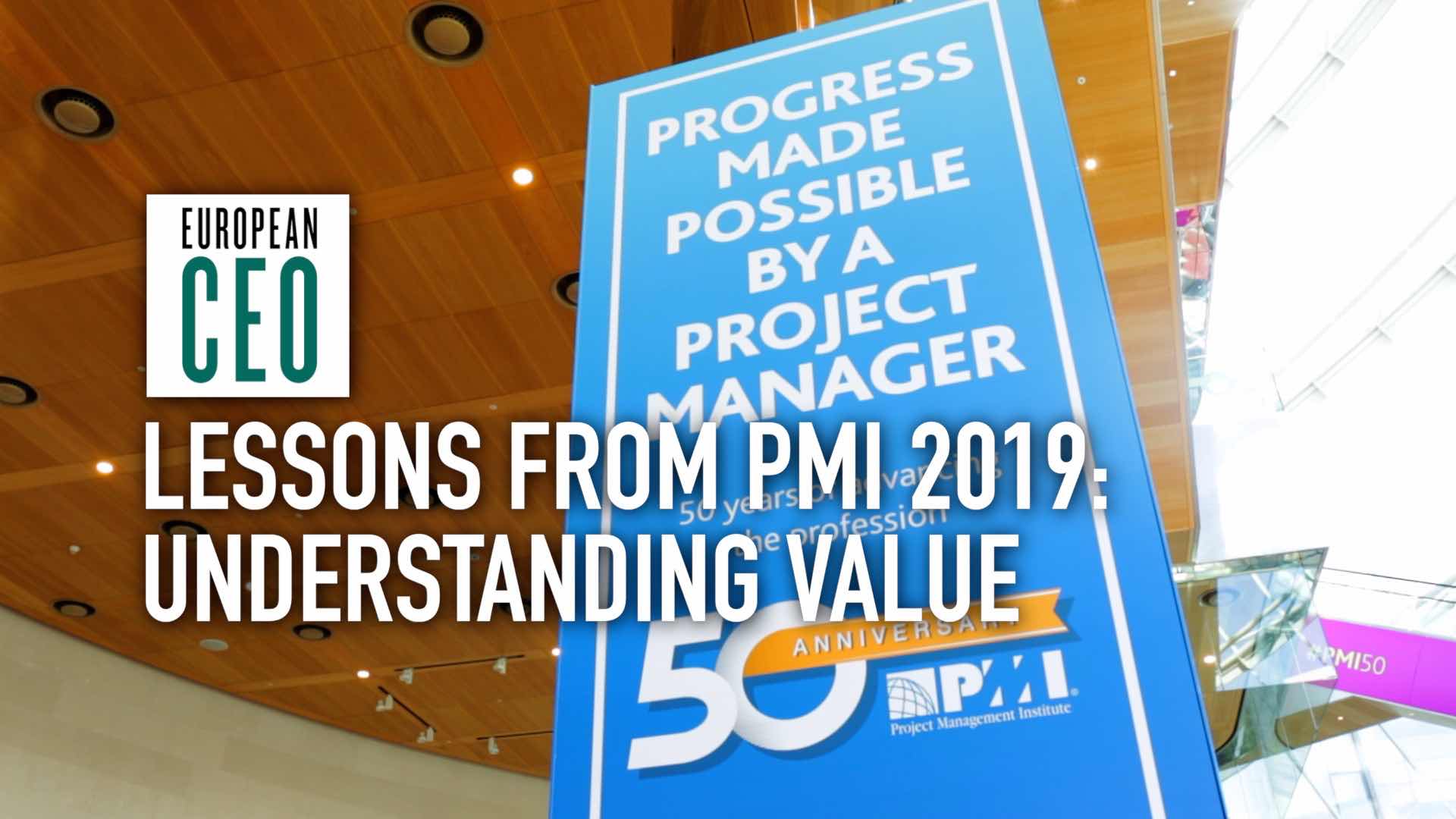New project management skills required to address digital disruption
Understanding of digital tools will overlay technical project management, strategic and business management, and leadership skills, says PMI's Mark A. Langley
Transcript
Organisations are wasting 10 percent on every dollar spent due to poor project performance, according to the Project Management Institute’s latest report. CEO and President Mark A. Langley says the number of roles for project managers is increasing, alongside higher competition and a faster pace of change. So it’s more important than ever to find and foster the right talent and get that wastage under control. Mark explains how organisations can improve the ways they manage project management talent, and discusses the new overlay of digital tools that will supplement the PMI’s Talent Triangle: technical project management, strategy and business management, and leadership skills.
Watch our other videos with Mark A. Langley, where he discusses finding the right approach to deliver each project individually, and the importance of executive sponsorship to project and strategy success. For even more project management advice, explore the European CEO Guide to Project Management, powered by PMI.
European CEO: Mark, what role do project managers play in an organisation’s broader strategy?
Mark A. Langley: I think increasingly organisations are recognising that strategy – whether they call it strategic initiatives, or transformation, or change programmes – is implemented through projects and programmes. So the role that project managers play is really implementing strategy. And when organisations recognise that connection and invest more formally in talent that’s necessary to deliver on the strategy, they’ll have better results.
European CEO: What’s the biggest oversight that organisations make when it comes to project management talent?
Mark A. Langley: Well we see several practices that champion organisations have implemented, that makes them more successful than low performers.
The first includes adopting a formal, documented career path for project managers. So rather than leaving it as an ad-hoc role in an organisation – maybe informal, with great variability across the organisation – they’ve taken the effort and made the investment strategically to identify a role for project and programme management. That defines the duties, the responsibilities, the competencies skills and behaviours that are necessary to be successful.
And in addition to that, they’ve actually implemented training and development on an ongoing basis. Because like any other role in the organisation, you need to have currency in the skills for the future, not just the work of today. So they look forward 3-5 years, and say: where are we heading from a strategic standpoint? What are the capabilities that we need? And we’ll match the skills development for our project managers in that defined career path going forward.
European CEO: What should organisations be doing now to commit to better talent development?
Mark A. Langley: Well the skillset and really the role has transitioned over the past decade or two. So while it was more of a project coordinator role, to a project manager – maybe managing artefacts of the project, schedule and budget – it’s really become very much a project leader role. And because of that, in our talent triangle, we’ve identified three critical areas. One being technical project management skills: so they’re still essential. To be successful, organisations tell us and our research proves that you need sound technical project management skills as a project manager.
But you really need two other areas. The first is strategic and business management skills. So you think about the age of digital disruption: what is the impact of that to the organisation’s strategy? And you have to have the strategy and business management skills to understand that for the organisation, and ultimately for the customer.
And the third area, and perhaps the most important in our research is leadership. They include things like organisation change management. Negotiation. Conflict resolution. These skills are really critical in terms of motivating the team, creating a vision for the team. So that for the duration, they’re performing at the highest level, ultimately to achieve and deliver on the organisation’s strategy.
European CEO: What trends are you seeing in these champion organisations that are already doing this well?
Mark A. Langley: Well I mentioned that every organisation is being disrupted digitally. And most organisations, the vast majority, recognise that they need to transform digitally over the next three years. As part of that, what we would see against our talent triangle that we discussed is, really an overlay of certain skills. And one would be digital.
So will you be using artificial intelligence in order to do your tasks more efficiently and productively? Or in the leadership side, how do you use digital to continue to move the team through successfully? And ultimately in the strategy and business management side, how does digital trends and those skills play a role in your organisation, in terms of the impact to customers, or the internal customers and the businesses that you operate in?
So organisations are broadening across that talent triangle, and putting an overlay of what’s critical for them. And I think that’s the important thing. Leading organisations, champion organisations, recognise that they need to prepare and apply the right fit of those skills to their organisation to be successful.


 The Project Economy: What it means for the world, business, and you
The Project Economy: What it means for the world, business, and you PMI: There’s a lot of work to be done in the discipline of transformation
PMI: There’s a lot of work to be done in the discipline of transformation Understanding and delivering value | PMI EMEA Congress 2019
Understanding and delivering value | PMI EMEA Congress 2019